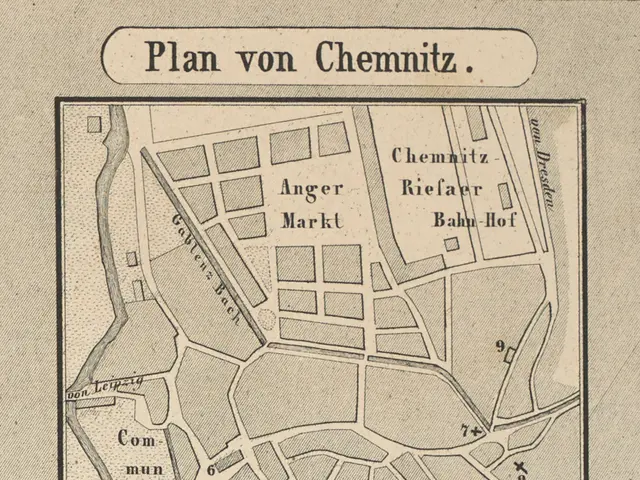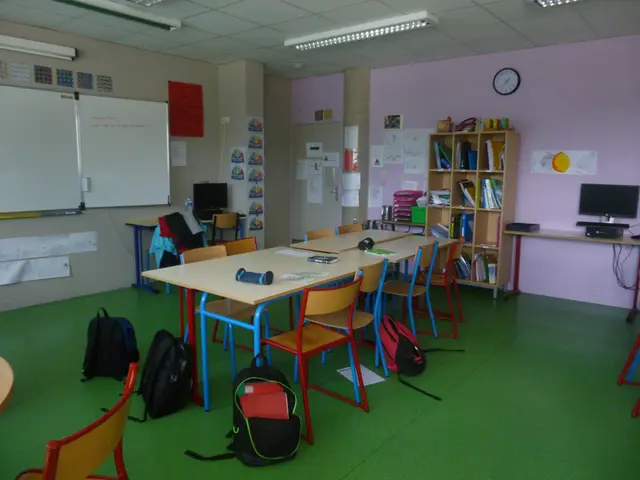Vietnam Aims for Continued Growth in Relations with U.S.: PM's Statement
Hoi An, The Bold New Chapter
Vietnam's Prime Minister Phạm Minh Chính rolled out the red carpet on May 7 for Reva Price, the chair of the US Congress's US-China Economic and Security Review Commission. The meeting in Hoi An, an ancient city, was a testament to the budding camaraderie between Vietnam and the US.
Vietnam cherishes its Comprehensive Strategic Partnership with the US and ardently desires the friendship to flourish, further evolving into a fruitful alliance, Chính shared during his meeting with Price.
Welcoming the delegation from the USCC, PM Chính reaffirmed Vietnam's unwavering commitment to an autonomous foreign policy and a defense strategy built around a four-pillar foundation. He emphasized Vietnam's aim to construct an indigenous and self-reliant economy, while simultaneously fostering global integration.
The relationship between the two nations has bloomed over the previous years, and PM Chính took note of the US's resilient efforts in addressing the aftermath of the war, calling on the nation to a swift recognition of Vietnam's market economy status. He urged the US to remove Vietnam from the D1 and D3 strategic export control lists and to enhance technological cooperation in their economic, trade, and investment collaborations to promote a balanced and sustainable trade environment.
The PM praised the support of the US administration and Congress for a self-reliant, robust, and thriving Vietnam, imploring the USCC Chair and her team to continue championing bilateral relations.
Tackling the tariff issue head-on, the leader acknowledged Vietnam's readiness to engage in negotiations with an aim to benefit both nations' citizens and businesses, while simultaneously revolutionizing the economy, diversifying markets, products, and supply chains to create an indigenous and self-sufficient economy.
Engaging in regional issues, the PM reiterated Vietnam's long-held stance on resolving the East Sea (also known internationally as the South China Sea) predicament via peaceful means, in accordance with international law. He highlighted the efforts undertaken to enforce the Declaration on the Conduct of Parties in the East Sea (DOC) and to progress negotiations on a Code of Conduct (COC) that aligns with international law.
He appealed to the US to maintain its backing for ASEAN's common stance on the East Sea issue and to uphold the pursuit of diplomatic resolutions to disputes based on international law.
Price, delighted by her first-ever visit to Vietnam, hailed Vietnam as a vital US partner in the region. The delegation members lauded the progress in the bilateral relationship and shared their optimism about its future growth. They agreed with the PM's proposals and vowed to keep advocating for the development of bilateral relations, including the recognition of Vietnam's market economy status and the tariff negotiations between the two nations.
Behind the Curtains: Understanding Current Developments
Market Economy Recognition
Although there is no recent confirmation, Vietnam has been striving to secure recognition from the US as a market economy. Granting such recognition could have a profound effect on trade dynamics and is a prominent topic in the ongoing negotiation process.
Tariff Negotiations
Vietnam and the US are currently embroiled in trade talks to normalize trade imbalances and tackle tariffs. Previously, the US imposed tariffs, including a proposed 46% tariff under a reciprocal tariff regime announced by President Donald Trump, that have placed strain on Vietnamese exporters. The proposed tariffs were initially announced but have been postponed until July, providing some leeway for negotiations.
Impact and Progress
- Export Boom and Trade Surplus: Despite the tariff pressures, Vietnam's exports to the US have skyrocketed, reaching a post-pandemic high in April. This surge has expanded Vietnam's trade surplus with the US, complicating negotiations by exacerbating the imbalances the tariffs aim to address.
- Challenges for Vietnam: The proposed tariffs pose severe risks for Vietnam's manufacturing sector, particularly in textiles, leading to canceled contracts, workforce reductions, and employment freezes. The overall economic growth in Vietnam is expected to decelerate due to these trade tensions and diminished global demand.
Prime Minister Phạm Minh Chính (right) met with Reva Price, chair of US Congress's US-China Economic and Security Review Commission on May 7. - VNA/VNS Photo
- Vietnam's Prime Minister, Phạm Minh Chính, has been actively pursuing the recognition of Vietnam as a market economy by the US, a move that could significantly impact trade dynamics.
- Both Vietnam and the US are engaged in ongoing negotiations to normalize trade imbalances and address tariff issues.
- The US had previously imposed tariffs, including a proposed 46% tariff, affecting Vietnamese exporters and straining bilateral trade relations.
- The proposed tariffs have been postponed until July, providing a temporary respite for negotiations.
- Despite tariff pressures, Vietnam's exports to the US have experienced a post-pandemic boom, increasing its trade surplus with the US.
- This surge in exports has added complexity to the ongoing negotiations, as it exacerbates the imbalances the tariffs aim to address.
- The proposed tariffs pose significant risks for Vietnam's manufacturing sector, particularly in textiles, leading to job losses and potential economic growth deceleration.
- The economic growth of Vietnam is expected to slow due to these trade tensions and reduced global demand.
- PM Chính and the USCC Chair, Reva Price, discussed these issues during their meeting in Hoi An, with both parties expressing optimism about the future of their bilateral relations.







